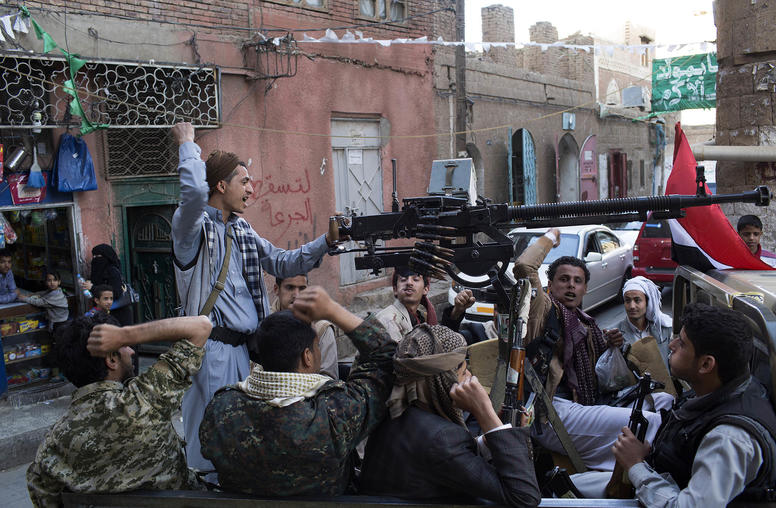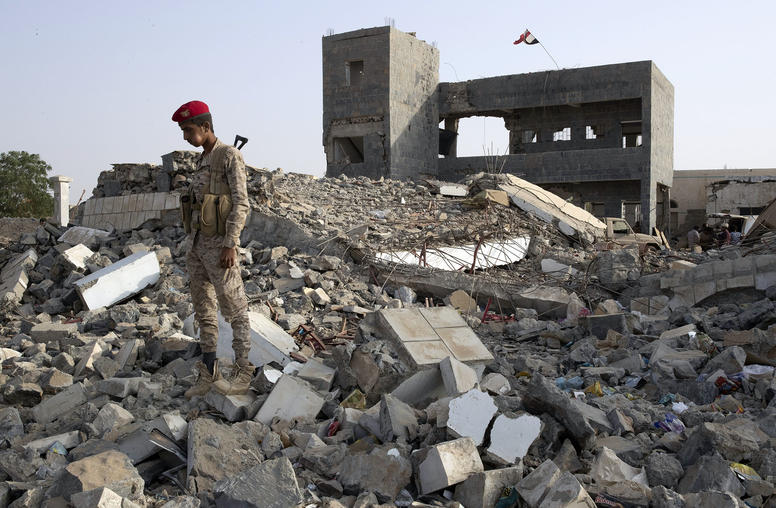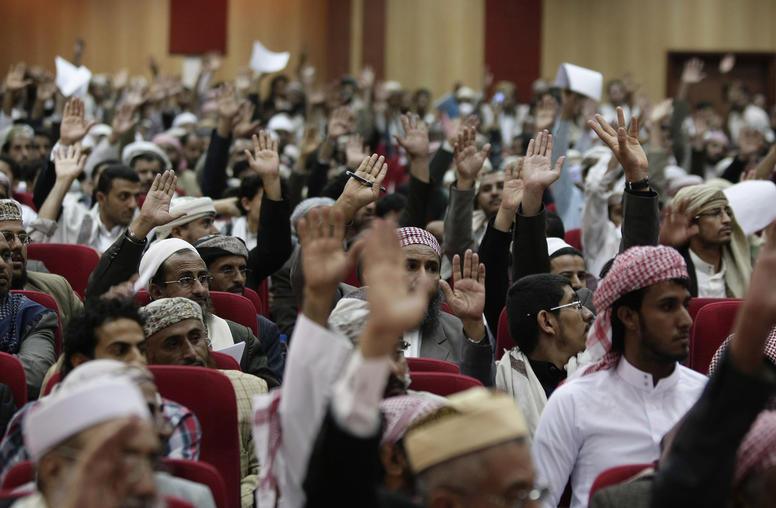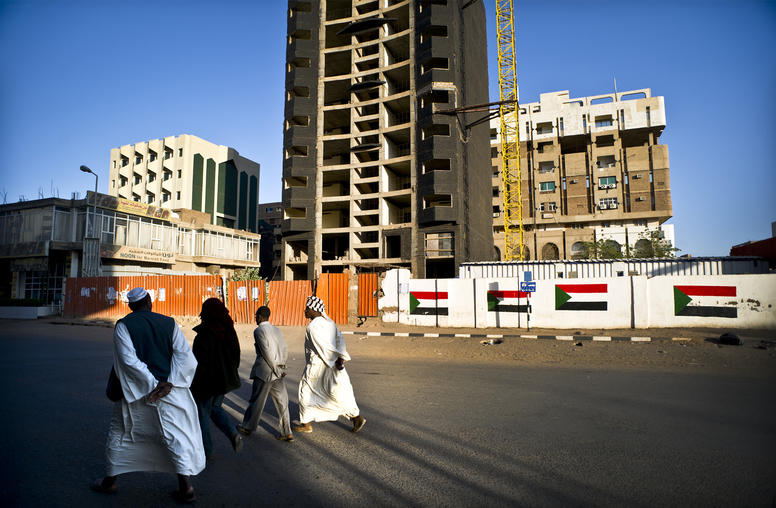Sustainable Security in Yemen: Popular Committees in Abyan
In early 2011, as the Arab Spring protests swept through Yemen and crippled government control even in more urban areas Ansar al-Sharia (AAS), a local Islamic militant group affiliated with al-Qaida in the Arabian Peninsula (AQAP), began to take control of major areas of the far southeastern governorate of Abyan. This not only posed a serious threat to local residents but also to those beyond Yemen’s borders. With Abyan in the control of AAS and beyond government reach, Abyan risked becoming a new safe haven for transnational terrorist, giving breathing space for an already aggressive and growing AQAP.
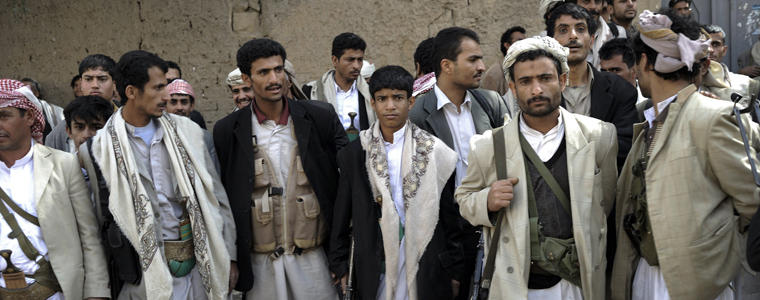
AAS was pushed out of control in 2012 and are now held at bay largely through the efforts of ad hoc, local militia groups known as “Popular Committees” that sprung up out of home-grown resistance to AAS and AQAP. But this short-term solution now risks begetting even bigger long-term problems. Many fear that these unaccountable, untrained militias will become entrenched and dangerous in the long-term – if they are not already – resulting in abuses against the population, corruption, and obstacles to a regular rule of law presence in the future. Yet the Yemeni government and local residents still struggle with a fundamental dilemma: to remove the Popular Committees and rely solely on Yemeni security forces now risks destabilizing Abyan again and the return of AAS and AQAP.
USIP is currently engaged in a series of Justice and Security Dialogues (JSDs), providing a forum for local and national Yemeni stakeholders to work through critical security dilemmas like the issues surrounding Popular Committees. This blog will explore some of the common questions and issues surrounding Popular Committees, which are central to policy debates both in Yemen and internationally about how to stabilize Yemen in the short and long term.
What are the Popular Committees?
After AAS took control of major areas Abyan descended into over a year of open conflict, assassinations, increased U.S. drone strikes, and an absence of any regular rule of law in the governorate. Hundreds of thousands of civilians caught between these sides and facing a humanitarian disaster fled to nearby Aden, the major port city in south Yemen.
Left largely to their own devices by a government struggling to quash Arab Spring protests across Yemen, members of the local population began to arm themselves against AAS, forming militias which became known as Popular Committees. Although some of the members and leaders have tribal affiliations, these are not primarily tribal militias. And while some had past experience as policemen or in the security forces, many were simply teachers, lawyers, or community members seeking to protect their communities from what they viewed as an illegitimate and often abusive force.
In the summer of 2012, the Popular Committees together with the Yemeni military and security forces, pushed AAS out of the population centers in Abyan and the government formally re-asserted control of Abyan. The population tends to credit the Popular Committees, rather than the government forces, with this victory. Although initially supported by the population, since mid 2012, the Ministry of Defense has been directly paying at least the major Popular Committees a monthly stipend, 30,000 rials per month (~$140), according to one commander.
What is the situation in Abyan now?
Although the government has nominally been in control of Abyan for the last year, in the words of one participant at USIP’s JSD, Popular Committees have “replaced the state in every sense of the word.” Most government and security officials continued to operate from Aden, if at all, for all of 2012. Only in the last few months have locals reported an actual presence of government officials and security forces in the governorate. District officials said they rely on Popular Committees to have someone detained, or to enforce a decree or judicial order.
For the moment the Popular Committees are better than nothing in the eyes of the population but they’re not a sustainable solution. Most participants (including the Popular Committee representatives) at the USIP JSDs said they wanted a renewed state security and government presence, arguing that the burdens of security, governance, dispute resolution, and even basic health and education provision is too much for ad hoc, and uncoordinated militias. AAS and AQAP are dormant, but not gone for good. With a continued lack of state presence, residents said AAS might become emboldened to retake areas of Abyan, with some popular support. As one female rights activist told USIP, “At the end of the day people need justice and security. They’d prefer if that came from the government, but if the government is not providing that, then they will turn to whoever can, including Ansar al-Sharia.”
What are the long-term concerns with Popular Committees?
Many fear that Popular Committees may become part of the problem rather than the solution. They might turn into armed groups and engage in criminal activity or challenge government authority. Reports of abuse by Popular Committee members has risen in recent months. Others argued that since the Ministry of Defense began paying the Popular Committees in 2012 it has incentivized less scrupulous actors to form ‘Popular Committees,’ and that paying unaccountable militias will increase corruption, cronyism, and criminality in the long-run.
There has been increasing discussion of disbanding the Popular Committees or integrating their members into the regular security and police forces. As one of the community leaders argued, “the Popular Committees were formed for one main reason – to expel al-Qaida. Now that that has been accomplished, they should be withdrawn.”
What are some possible solutions?
During the USIP JSD, participants largely agreed that there should be some efforts to integrate at least parts of the Popular Committees into the security forces. Since some may not have the appropriate background or qualities to join the security forces, any reintegration should be on a case by case basis and coupled with appropriate training and education.
But while there was much consensus about this general solution, there are a number of obstacles in practice. First and foremost, for Popular Committees to step down there must be an able and adequately resourced government security and civilian presence to take over. Popular Committee members argued that if they were disbanded in the current context it could lead to a relapse into open conflict. Local Abyani officials and even one of the main Popular Committee leaders noted that they had repeatedly asked the national level Ministries and President Hadi (himself a native Abyani) for greater security forces and support for government officials, but that despite promises of assistance, significant resources had not materialized.
At the USIP JSDs, some locals were suspicious of the government and inferred bad motives from the lack of adequate security and government support forthcoming so far, while other participants argued that given the limited resources in Yemen and the wealth of challenges in every governorate, the Yemeni governorate does not have enough security forces and effective government servants to spare for Abyan. “There’s no sign of the state in Aden [one of the largest cities in Yemen]. What do people expect in Abyan?” one Abyani participant noted.
What is USIP’s role in helping to address this problem?
In April 2013, USIP published a major research paper assessing the impact of the post-Arab Spring transition period in Yemen on local justice and security conditions in four govenorates, including an examination of the security dilemmas in Abyan and the role of Popular Committees. The JSDs that USIP is currently engaged in enable follow up on the recommendations from that research, on the issues surrounding Popular Committees, but also other security and justice issues. In the coming months, USIP is working with some of the stakeholders from the first dialogue to raise the concerns discussed in the first JSD to the Ministries of Defense and Interior, the president’s office, and other relevant national actors. Participants are also working with the governor’s office to try to improve cooperation at a subgovernance level, for example, trying to increase the number of joint checkpoints (two exist at the time of writing) and increasing efforts to pool information and reports of criminal or militant activity.
